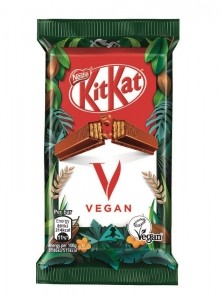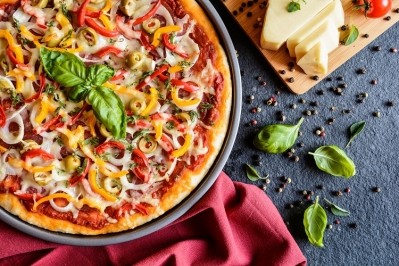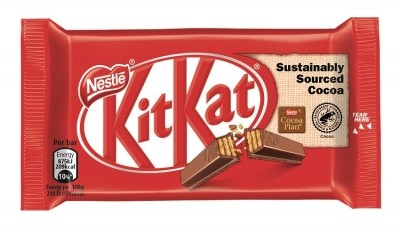‘It's a once in a generation opportunity’: Nestlé CEO says plant-based innovation can ‘reinvigorate’ broader food categories
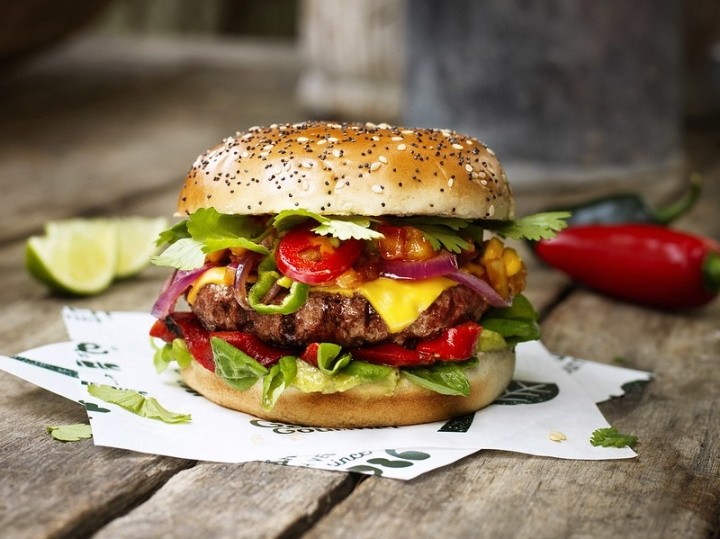
Swiss food giant Nestlé saw ‘strong double-digit organic sales growth’ from its plant-based brands in 2020, management revealed last week.
Speaking during a conference call to discuss the group’s full-year performance, chief executive Mark Schneider said the performance of plant-based illustrates the company’s strategy of focusing on ‘high growth’ categories.
Nestlé’s ‘inner core’ of plant-based meat analogues generated 2020 sales ‘in the vicinity’ of CHF200m with ‘strong’ double digit growth. Sales in Garden Gourmet grew by ‘close to 60%’ supported by ‘new product launches and continued distribution expansion across its 20 markets’, CFO François Roger detailed.
This is certainly well ahead of Nestlé’s broader global portfolio, which saw organic sales gain 3.6% throughout 2020.
However, Schneider noted, the opportunity in plant-based goes well-beyond the bun, the ‘one part that seems to be getting all the attention’.
“It is about a wider opportunity to re-imagine, reinvent and reinvigorate what is a CHF12bn category for us and that is food. Those opportunities to reinvigorate the food category are few and far between. It's a once in a generation opportunity.”
The wider opportunity: ‘Where we use these ingredients’
According to Schneider, the innovation supporting Nestlé’s efforts to grow its plant-based brands holds an important unlock in the broader context of Nestlé’s offering.
“When you look at the wider opportunity, when you look at where we use these ingredients, to then make more attractive downstream offerings, like frozen pizza with plant-based toppings or frozen meals or other prepared dishes, then it's a much bigger opportunity. We're talking almost CHF700m [in 2020 sales]. And here again, growing at double digit organic growth rates.”
In this way, the chief executive suggests plant-based innovations like Nestlé’s Garden Gourmet Sensational Burger are a point of entry that ‘branches out into a much, much wider opportunity’.
The same can be said for plant-based dairy alternatives. “Here we have a business slightly ahead of CHF100m, again, growing double-digits. But here, again, it's an entry point to other areas that you can reinvigorate. Think about ice cream, think about confectionery,” Schneider observed, noting the launch of a vegan KitKat variant this month as case in point.
More of a challenger than a leader?
This bigger picture approach – and the idea that plant-based innovation can be leveraged to revitalise some of Nestlé’s established billion-dollar brands – could serve the company well given its performance relative to other pure-play meat analogue brands.
As UBS analyst Guillaume Delmas noted, Nestlé – ‘at this stage at least’ – is ‘more of a challenger than a leader’ in the plant-based meat analogue category. Delmas added that it was ‘encouraging’ not to focus ‘so much on which alternatives’ because analogues are ‘just a tip of the plant-based opportunity’.
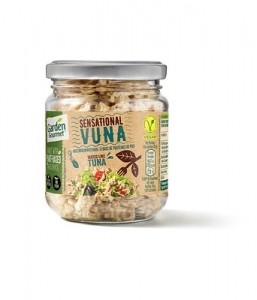
Schneider conceded that when it comes to ‘share of mind… some other companies are better in doing that’. “We were certainly not the headline grabber in this industry,” he agreed.
However, when it comes to ‘pure innovation’, he outlined instances where Nestlé was ‘first out there’, including its plant-based bacon cheeseburger and tuna launches.
“We were the first to offer from one source a complete bacon cheeseburger. We have the burger patty, the cheese [alternative] and the bacon alternative, so we can offer a complete kit to out-of-home partners.
“We have [also] seen great success last summer with the product that few people had on the radar screen: Plant-based tuna alternative, which is now one of the bestselling plant-based items in select European markets. We're still scaling this up,” he noted.
Digital: ‘A giant has awoken’
On future growth spaces, Nestlé management was also bullish on the importance that digital will play in driving its brands.
“Sales in e-commerce exceeded CHF10bn with further market share gains online,” finance chief Roger noted.
Relative to the company’s food and beverage competitive set, this means the company is ‘doing quite well’ in digital, Schneider suggested.
Indeed, Stifel analyst Alain-Sebastian Oberhuber would agree. “Nestlé’s e-commerce strategy is successful. Total e-commerce sales represent 12.8% of group revenues with growth of 48.2%,” he noted.
But Schneider insisted the company is not resting on its laurels when it comes to driving digital innovation.
“This is now a giant that has awakened, this idea that the food and beverage industry is all of a sudden seeing a major digital component. We need to work hard to stay ahead of this.”
